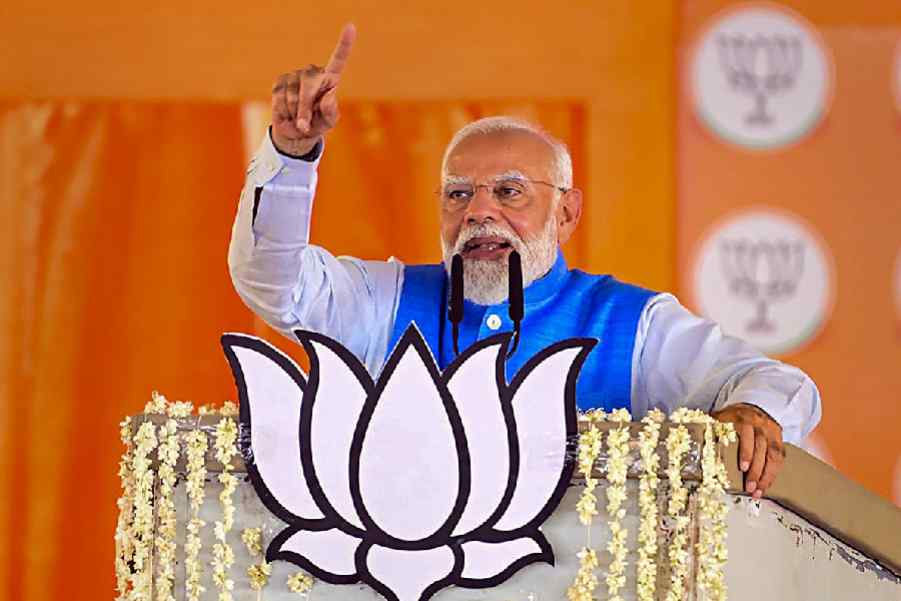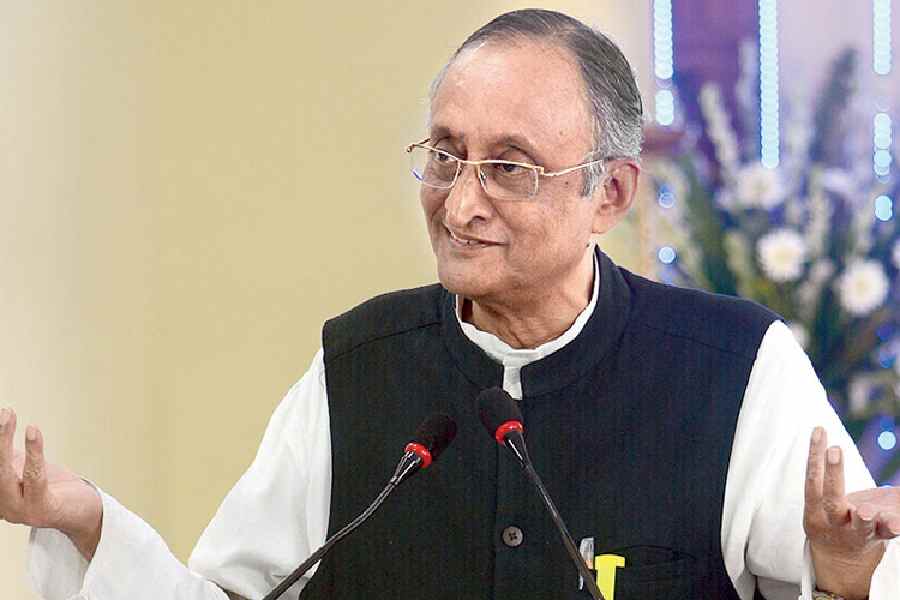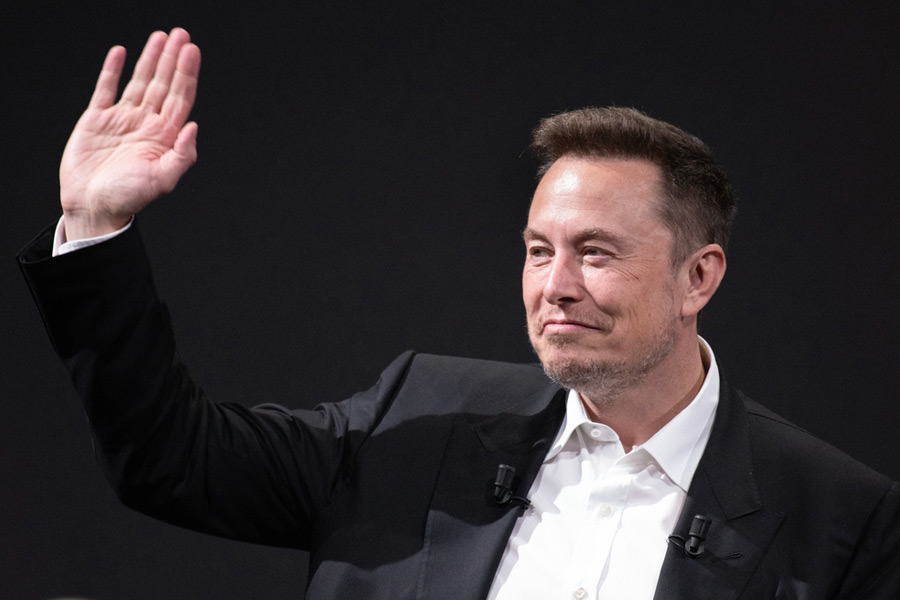Invest in fundamental science, was the single most important message from Nobel laureate Ben Feringa, who is in the city as part of his tour of India as the CV Raman Chair instituted by the Indian Academy of Sciences.
Feringa won the Chemistry Nobel Prize in 2016, together with J. Fraser Stoddart and Jean-Pierre Sauvage, “for the design and synthesis of molecular machines”.
As part of his India tour, he has also visited IIT Kharagpur.
“I am impressed with the discussions at the IIT,” the Nobel laureate said while delivering a lecture at the Bengal Club on Wednesday.
“I spoke at a symposium in Calcutta on Tuesday morning and I had a fantastic audience. But I want to stress that don’t forget to invest in fundamental science. Usually, there is a lot of interest in applied science. But a good basis for education is the foundation of fundamental science,” said Feringa, whose design and synthesis of nanomolecular machines, molecular switches and molecular motors have opened possibilities of precise drug delivery to affected organs.
Molecular nanocar, a molecule that Feringa has developed, contains molecular motor-based wheels and has laid the foundation for robotic surgery where nano robots injected in bloodstreams can carry out operations of affected organs in future.
Feringa talked about the “tremendous opportunity for industry-academia interface”. Industry stands to gain a lot through strategic cooperation with universities, said the professor, who has worked for over six years in the petrochemical and bioscience laboratories of Royal Dutch Shell.
“Big corporate research facilities should be made use of. Industry knows how to take a research forward. Academic research is not always ready to bring in products,” he said.
Explaining further, Feringa said: “When you develop a new candidate for a product, there are so many parameters to assess, whether it is viable, safe, is the process too expensive, there might be engineering problems. These are solved by industry.”
Leaving Shell, Feringa went back to academia to work on fundamental questions and he built his research team. “I love to teach too,” said the Jacobus van ’t Hoff Distinguished Professor of Molecular Sciences at the Stratingh Institute for Chemistry, University of Groningen, the Netherlands.
He couldn’t stress enough the role played by teachers in his life. “I had an extremely inspiring physics and chemistry teacher who went beyond the textbooks and put things in perspective. A good teacher can talk about the beauty of learning,” recounted the farmer’s son.
His maths teacher would challenge him with difficult problems.
Saying the university should be a playground, the scientist said: “Universities should have enough freedom, you can’t dictate discovery. All inventions or discoveries are based on fundamental science.”
Talking of the smartphone and how it has changed the world and the way it communicates, Feringa said: “It was in the early 50s and the late 40s that fundamental discoveries made in material science and physical science came together to make smartphones possible decades later.”
Thanks to the Internet and social media, everybody gets a tsunami of information but the scientist said it was the quality of data or information that is important. “The critical attitude is in training children to distinguish between fact and fiction. Data, insights, thoughts and quality of thoughts is important,” said the chemist.










